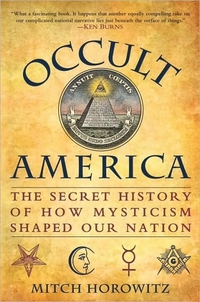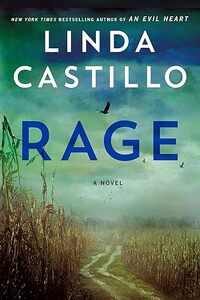

Purchase
The Secret History Of How Mysticism Shaped Our Nation
Bantam
September 2009
On Sale: September 8, 2009
304 pages
ISBN: 0553806750
EAN: 9780553806755
Hardcover
Add to Wish List
Non-Fiction
It touched lives as disparate as those of Frederick
Douglass, Franklin Roosevelt, and Mary Todd Lincoln—who once
convinced her husband, Abe, to host a séance in the White
House. Americans all, they were among the famous figures
whose paths intertwined with the mystical and esoteric
movement broadly known as the occult. Brought over from the
Old World and spread throughout the New by some of the most
obscure but gifted men and women of early U.S. history, this
“hidden wisdom” transformed the spiritual life of the
still-young nation and, through it, much of the Western
world.
Yet the story of the American occult has
remained largely untold. Now a leading writer on the subject
of alternative spirituality brings it out of the shadows.
Here is a rich, fascinating, and colorful history of a
religious revolution and an epic of offbeat
history.
From the meaning of the symbols on
the one-dollar bill to the origins of the Ouija
board, Occult America briskly sweeps from the
nation’s earliest days to the birth of the New Age era and
traces many people and episodes, including:
•The
spirit medium who became America’s first female religious
leader in 1776
•The supernatural passions that marked
the career of Mormon prophet Joseph Smith
•The rural
Sunday-school teacher whose clairvoyant visions instigated
the dawn of the New Age
•The prominence of mind-power
mysticism in the black-nationalist politics of Marcus
Garvey
•The Idaho druggist whose mail-order mystical
religion ranked as the eighth-largest faith in the world
during the Great Depression
Here, too, areAmerica’s
homegrown religious movements, from transcendentalism to
spiritualism to Christian Science to the positive-thinking
philosophy that continues to exert such a powerful pull on
the public today. A feast for believers in alternative
spirituality, an eye-opener for anyone curious about the
unknown byroads of American history, Occult America
is an engaging, long-overdue portrait of one nation, under
many gods, whose revolutionary influence is still being felt
in every corner of the globe. Publishers WeeklyAmerica has provided
fertile ground for alternative spirituality, particularly
the form known as “occult,” whose American leaders, unlike
their more grandiose European counterparts, “sought to
remake mystical ideas as tools of public good and
self-help,” says Horowitz, editor-in-chief at Tarcher.
Looking back at the growth of the spiritualist and utopian
movements, he introduces the reader to a parade of
personalities, both familiar and obscure: “dreamers and
planners who flourished along the Psychic Highway.” He
begins with Shaker Mother Ann, who arrived in America in
1774 followed by, among many others, “pioneer prophetess”
Jemima Wilkinson; “Poughkeepsie Seer” Andrew Jackson Davis;
Madame Blavatsky, who founded the Theosophical Society in
1875 and popularized the word “occultism”; Frank B.
Robinson, the “Mail Order Messiah”; and Edgar Cayce with his
“past-life readings.” Horowitz covers a wide variety of
topics, from voodoo to the tenets of the New Age, psychics
in the White House, Rosicrucianism, Wicca, arcane Masonic
imagery, Tarot cards, the controversial reincarnation of
Bridey Murphy and the origin of the science fictional Shaver
mystery. Employing extensive research while writing with an
authoritative tone, Horowitz succeeds in showing how a “new
spiritual culture” developed in America.
Comments
No comments posted.
Registered users may leave comments.
Log in or register now!
| 


 © 2003-2025 off-the-edge.net
all rights reserved Privacy Policy
© 2003-2025 off-the-edge.net
all rights reserved Privacy Policy